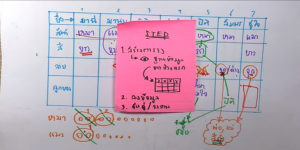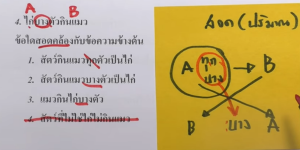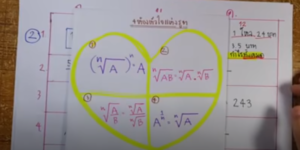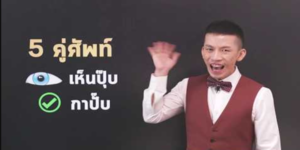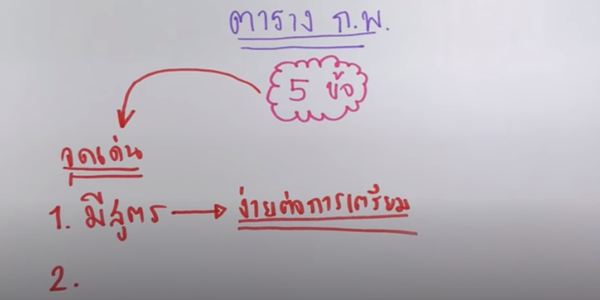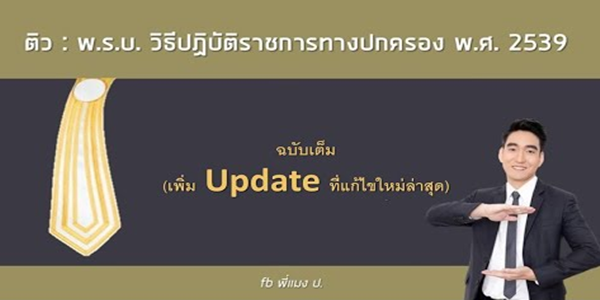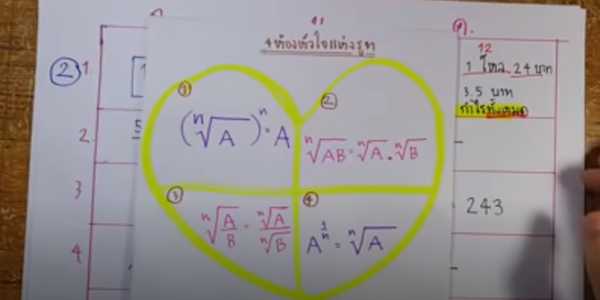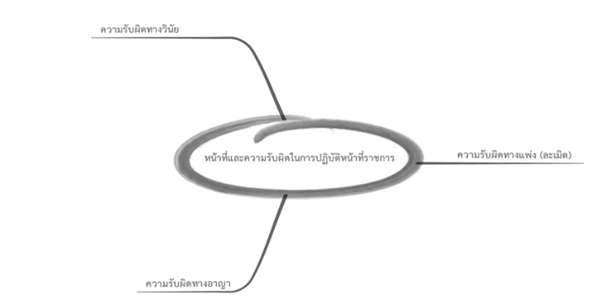ติวสอบ TU-GET Reading
หลักการทำข้อสอบ TU-GET Reading มีเทคนิคอะไรบ้าง
1.อ่านคำถามและ choice แรกพร้อมขีดเส้นใต้คำที่เราคิดว่าสำคัญมา และทำให้เราทราบว่าหัวเรื่องที่เรากำลังจะอ่านเรื่องอะไร และคำถามข้อแรกๆ จะอยู่ในย่อหน้าแรกๆ คำถามกลางๆจะอยู่ในย่อหน้ากลางๆ ส่วนคำถามท้ายๆ จะอยู่ในย่อหน้าท้ายๆ การอ่าน คำถาม และ choice แรกจะทำให้เราสรุปความคิดกว้างๆ ได้ว่าเรื่องนี้เกี่ยวกับอะไร
2.จำไว้ว่าภาษามีความฟุ่มเฟื่อย เราจึงไม่จำเป็นจะต้องแปลให้ได้ทุกคำ ในระหว่างอ่านควรนำความรู้พื้นฐานทั่วไปมาใช้ในการคาดเดาเนื้อเรื่อง
3.ย่อหน้าแรกและประโยคแรกสำคัญมากและมักจะเป็น main idea หรือความคิดหลักของเรื่อง
4.สรุปแต่ละย่อหน้าและเชื่อมโยงแต่ละย่อหน้าเข้าด้วยกันจะเห็นว่าคำถามเกี่ยวกับ main idea (ความคิดหลักของเรื่อง) และ purpose (วัตถุประสงค์ในการเขียนเรื่อง)
5.ทุกครั้งที่พบคำสรรพนาม(pronoun) ต้องฝึกนิสัยคอยถามตัวเองว่าคำสรรพนามนี้หมายถึง (refer to) อะไร
6.คำใดที่ปรากฎซํ้าๆ มักจะมีความสำคัญหรือไม่ก็เป็น main idea ของย่อหน้านั้นๆ หรือของเรื่องนั้นๆ
1. What do we learn in the opening paragraph?
A. The author arrived by bus.
B. The author wasn’t accustomed to such cold.
C. The author wished he had had another pair of gloves.
D. The author ate some ice when he arrived.
2. What is the local theory about vodka?
A. If you drink too much, you may never walk again.
B. If you don’t drink it, you may lose your legs.
C. If you drink it, you may suffer less from the cold.
D. You shouldn’t drink it if you are old.
3. Which sentence is true about the hospital?
A.It is too warm inside.
B. Thay don’t have enough supplies and equipment.
C. The staff didn’t want to talk to the journalist.
D. Most frost-bite victims need to have operations.
4. What happened to Nikolai?
A. He almost lost his hands.
B. He ignored the weather forecast.
C. He had a problam with his engine.
D. He had had to help himself
5. Houses in Irkutsk…
A. don’t have separate bathrooms.
B. were built by private companies for profit.
C. are too cold if the temperature is less than -40 ํ C.
D. cause health problems for their residents.
สอนโดย : ครูพลอย Berante Online
Read the text and look at the questions that follow it.
In this reading comprehension, the questions are multiple choice.
1.
It was only minus 28 degrees Celsius when we landed in Irkutsk.
But that was cold enough to make breathing an effort – the air
felt like ice as it scraped the back of my throat. Five minutes later,
I needed a second pair of gloves and pulled my scarf tight over
my nose and mouth, I was obviously a beginner at this,
At the petrol station, Mikhail the attendant laughed when we asked if
he wasn’t freezing He’d spent the whole day outside with no more
than his fur hat and a sheepskin coat for warmth. It was mid-afternoon
and icicles were hanging from his moustache like Dracula’s fangs,
He said he never drank to stay warm – unlike many others.
Vodka
There’s a belief in Siberia that enough vodka will insulate you from
the cold. It’s been proved tragically wrong in the past few weeks.
Dozans of bodies of the homeless or men walking drunkenly back
rom the pub were hauled out of the snowdrifts, frozen or so badly
frost-bitten that many will never walk again.
2.
The local hospital in irkutsk is overwhelmed. Ironically, it’s the burns
unit that’s taken all the frostbite victims – 200 of them in just two
weeks in one town, Even here, icicles are hanging down on the inside
of the windows, though the heating is on full power. The doctor was too
busy performing amputations to talk to us.
Shortages
But we could hear the screams from the operating room. They’d run
out of anaesthetic after performing 60 amputatons that week, The
other patients could hear it too, and one girl in the corridor, clinging
to her mother for support, was near to tears.
Nastya in only 16, Last week she missed her last bus home,
so she walked instead – sevan kilometres through the snow,
in temperatures of minus 40. She had no gloves. Now her hands
are bandaged and hang down uselessly, She’ll find out soon
if they need to be amputated.
3.
She’ was far from the worst case, in one bed, Nikolai Dobtsov
tay quietly staring at the ceiling. Underneath the sheets, blood
was seeping through his bandages, from where his feet and hands
had been amputated the day before, He was a truck driver,
he explained, with a good job delivering wood – and recently there’d
been a lot of demand So he’d set out to deliver a last load upcountry.
The weather forecast – just minus 25 in Irkutsk – seemed to suggest
that the journey was safe. It wasn’t,Hit truck broke down miles from
anywhere, and for 6 desperate hours he fought to repair the axle.
He even greased his hands for protection, and finally managed to
get the truck going again. Somehow he found the strength to drive
himself back and straight to hospital, but it was already too late.
I asked Nikolai what would happen to him now. He just laughed,
and shrugged. Nikolai has no wife of family in Irkutsk – and
invalidity benefit is a pittance, Life in an institution may be the best
he can hope for, and he’ll almost certainly never work again.
4.
Resilience
That incredible stoicism is overywhere, in Irkutsk at least, people
seem simply to accept that winter is harsh – and this one especially
so, It without doubt the cruellest Siberian winter in living memory.
Yet outdoors, everything appears to function normally – even schools
re – opened as the temperature rore briefly to minus 25.
The trams and buses are back on the roads, though everyone
drives slowly to avoid skidding on the layers of ice below the grit.
The main street bustles with people wrapped in layers against
the cold. But even indoors, the chill is inescapable. After her
shift as a tram conductor, Natasha Fillipova comes home to a
freezing house. She shows us the bedroom – where ice has
built up on the inside walls. She scrapes it off with her fingers,
but that has little effect. One night, Natasha says, she washed
her hair before going to bed. When she woke up, it was frozen
solid to the wall. The children are doing their homework in the
bathroom – the only room warm enough to sit in.
5.
Natasha doesn’t want to complain. But she is angry with the state and the
architects for building shoddy houses,
The flats here are supposed to withstand up to minus 40 degrees.
They don’t, and her children are ill with coughs and colds, Natasha’s
anger is brief, and she seems faintly embarrassed about it, Siberians
are used to cold weather, she explains. Here, she tells us, people
prefer to rely on themselves – and the knowledge that eventually,
spring will come,


